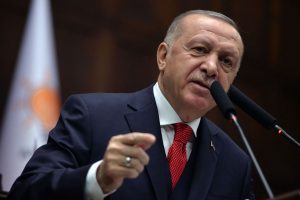The shambles which is the United Nations with its in-built hypocrisies and behind-the-scenes puppeteers was clinically exposed by India at the UNHQ on Thursday. Fostering of a culture of peace and condemnation of violence against religious groups, the Indian First Secretary to its UN Mission told the General Assembly, cannot be restricted to Abrahamic faiths.
“This august body fails to acknowledge the rise of hatred and violence against Buddhism, Hinduism and Sikhism… India agrees fully that anti-Semitism, Islamaphobia and anti-Christian acts need to be condemned and we firmly condemn such acts… (but) UN resolutions on such important issues speak only of these three Abrahamic religions,” he said while referring to the UN draft resolution on the Freedom of Religion or Belief.
Advertisement
An Indian representative, for perhaps the first time from a global platform, queried this selectivity in a sober, historically accurate and effective manner. It was about time someone called out the double standards of the mutually beneficial global talk-shop for warring Abrahamic traditions in their avatars as post-World War II nation-states that the UN has essentially become.
These countries, it ought to be kept in mind, are not too different ~ with honourable exceptions ~ from the religious monarchical states that fought the viciously violent Crusades in the medieval era. It ought to be a matter of pride for every Indian that it was our representative at the UN who belled the cat, as it were. But this is just the beginning and those with a sense of history would do well not to get carried away.
The political and by extension media narrative is already indulging in juvenile one-upmanship by focussing on the specifics which were cited by India at the UNGA merely as illustrations which do not in any way constitute the definitive stand of the Indian State.
So, while it is true that Pakistan’s move to hand over the decision-making role in the management of the Kartarpur Sahib Gurudwara to non-Sikhs, the Taliban’s blowing up of the Bamiyan Buddhas, the ethnic cleansing of Hindus from Kashmir and the rising tide of Hinduphobia particularly but not exclusively in South Asia are all contemptible, that is not the full story. It is a mindset that needs to change.
And that is a process, not an event. For example, those who (rightly) lionise a towering intellectual such as Edward Said for his pathbreaking academic work in explaining the fault lines between the Islamic and Judeo-Christian traditions, or East and West, fail to even recognise arguably the most seminal philosophical work of the 20th century in locating the Indic dharmic traditions’ encounters with Abrahamic religions by the brilliant academic SN Balagangadhara.
Last but not least, the normalisation of the nomenclature ‘religion’ to define Hindus, Buddhists, Sikhs and followers of other non-Abrahamic traditions needs to be resisted with far greater intellectual force than has been hitherto exhibited.
















